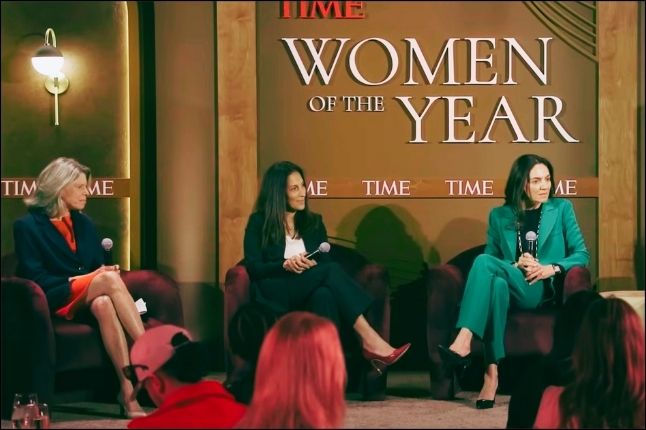This post is the third in a series. Here are the first and second posts. I’ll be talking about these posts and answering your questions live on Monday at 5pm Eastern. Become a paid Substack member to receive a link to the session.
I get off the plane in Charlotte and all my money’s gone. I think: How will I get home once I land in Boston? But then I remember the last time the money was gone my kids showed me you can sneak on the train without paying.
So I call the Wisconsin Department of Revenue to see if they are the ones who took my money. I say a little prayer about being able to get my money back: Please god make it the DOR and not the oil guy who sued me. Read more

My oldest kid wrote this five years ago for the college application essay. It didn’t work for a college essay. But I was so glad to read it. If you haven’t read my first post on multiple personality disorder, you can read it here. I will answer any questions you have on this topic on Monday, Nov. 24 at 5pm Eastern. Zoom link forthcoming.
On my sixteenth birthday, my mother told me she has dissociative identity disorder. It means that she has multiple identities – alters – that’s what people with DID call them. She’s had it my whole life. DID only occurs when a person experiences such terrible trauma as a child that they create another person in order to hide from what is happening to them. Read more

photo by Joshua Sariñana
I have multiple personality disorder
I’ve actually known this since 2013 when a psychiatrist at Northwestern University told me.
At the time I told myself it’s a misdiagnosis and I have autism. I told myself mental health professionals are so stupid and they are always misdiagnosing everyone and I have to figure out everything myself. I spent the next decade figuring out everything about autism.
I figured out my whole family has autism. I put myself and my kids on medicine for ADHD. I turned my career into identifying autism and being frustrated that people didn’t believe me when I told them. They’d say, “How do you know?”
I’d be incredulous: “I’VE BEEN DOING THIS FOR YEARS. IT’S SO EASY FOR ME TO SEE!” Read more

Screenshot from Ray Dalio’s video on economics
I tutor Art History Girl for six hours a day. It’s a lot of alone time to give up, but empty-nesting in my apartment took a turn for the worst when I agreed that for the last year of school Y could move back to my apartment with the boyfriend.
This year we’re doing AP World History.
During the unit about capitalism we watched cartoon videos that billionaire hedge-funder Ray Dalio made for members of Congress to learn how the economy works. In the videos everyone charges everyone money (“That’s the whole economy! It’s that simple!”) and it nagged at me that the boyfriend is not paying rent. Read more

Detail of The Rehearsal of the Ballet Onstage (1874) by Edgar Degas
Researchers studying autistic kids give secret autism tests to parents because it’s so easy to see that parents are autistic, but it’s such a huge pain to try to get the parents to understand. Think about it: no one benefits enough from telling you that you’re autistic that they are willing to try to convince you. But research becomes much more useful when we can label parents as autistic for studies even though parents would say it’s only their kid. Read more

The CDC’s fixation on Tylenol is a distraction. Every few years op-eds ask if Tylenol causes autism. The latest? Evidence inconclusive. Yes, autistic women take more Tylenol. And the debate stops right there.
Meanwhile, autistic women live in reality. The run on Tylenol is because doctors communicate poorly with autistic women. Autism is tied to chronic pain, gut issues, asthma, and PCOS — the impact on physical health is so significant that computers can pick out autistic people just by watching us walk. Read more

TIME magazine celebrated the 100 Most Influential Women with TIME’s Wealth Leadership Forum, where the message was clear: you’re incompetent at managing your money.
On stage, three unimpressive women scolded The Most Influential about risk-taking, wealth accumulation, and the dangers of not thinking ahead. Each of three panelists used trumped-up titles to hide the same formula: marry rich first, glossy career second. Read more

I was at the World Trade Center when it fell. I write about it every year on 9/11.
Nino and I are eating dinner while Y buzzes around the kitchen looking for something to take to his room.
Nino says to me, “What are you going to write about for 9/11? Read more

Nino says he’s having a heart attack. I laugh. He walks into my apartment and says, “I’ll just sit here a little.”
I have to put my head in my hands to give myself time to get rid of my smile. He asks if I’m crying. Read more

My son’s personality type is ISFJ. I’m an ENTJ. We’ve always worked well together: I could see where to climb, and he could see how to do it. I offended people, and he smoothed things over. At first his people-pleasing, detail-oriented nature made me think I was failing as a parent. Then I worried that we were such a good team that we’d become codependent.
Now that he’s in college, he doesn’t trust my plans. He relies on advice from friends at school who are obsessed with positioning themselves well for an AI-infused workforce. Read more

